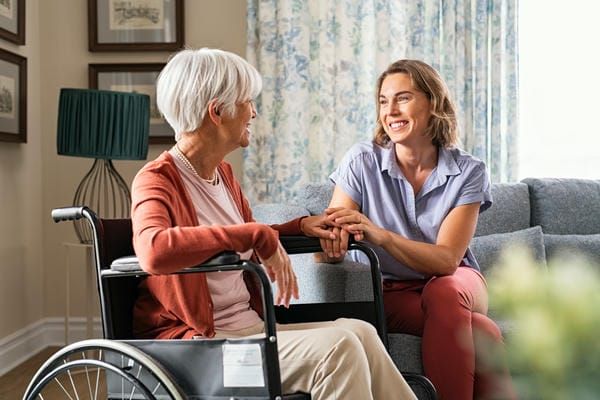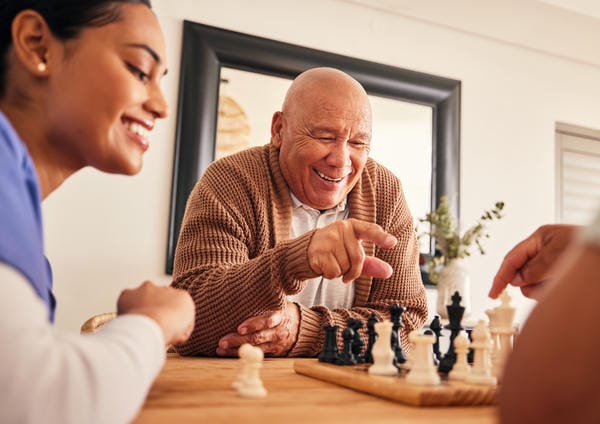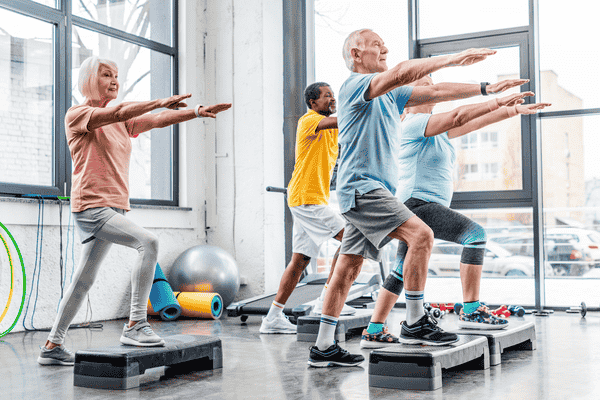In the tapestry of modern healthcare, caregivers stand as the unsung heroes, weaving together threads of compassion, skill, and dedication to create a fabric of comprehensive care for our aging loved ones. As we delve into the world of holistic health care for older adults, we uncover a rich landscape where caregivers play a pivotal role in nurturing not just the body, but the mind, spirit, and social connections that make up the entirety of a person’s well-being.
Imagine for a moment, Sarah, a vibrant 78-year-old who has always been the heart of her family. Following a recent health scare, her daughter Emily steps into the role of caregiver, determined to ensure her mother’s golden years are filled with vitality and joy. As Emily embarks on this journey, she discovers that true caregiving extends far beyond managing medications and doctor’s appointments. It’s about creating a symphony of care that resonates with every aspect of her mother’s life.
In this exploration of the caregiver’s role in holistic health care, we’ll journey through the various dimensions of well-being, uncovering how caregivers like Emily can make a profound difference in the lives of older adults. From nourishing the body to uplifting the spirit, we’ll discover the myriad ways in which holistic care can transform the aging experience.
The Foundation: Understanding Holistic Health Care
Before we dive into the specific roles of caregivers, it’s crucial to understand what we mean by holistic health care. This approach views the individual not as a collection of separate systems, but as an intricate, interconnected whole. Dr. Elena Rodriguez, a geriatrician specializing in integrative medicine, explains, “Holistic health care recognizes that physical health is deeply intertwined with mental, emotional, and spiritual well-being. When we care for one aspect, we impact the others. It’s like tending to a garden – you can’t nurture just one plant and expect the entire garden to thrive.”
For caregivers, adopting a holistic approach means expanding their view of health and recognizing that every interaction, every decision, has the potential to impact the overall well-being of the person in their care. It’s a perspective that transforms caregiving from a series of tasks into a journey of comprehensive nurturing.
Physical Health: The Cornerstone of Vitality
While holistic care encompasses many aspects of well-being, physical health remains a cornerstone of vitality for older adults. Caregivers play a crucial role in maintaining and enhancing the physical health of those in their care through various means.
Nutrition: Fueling the Body and Soul
For Emily, ensuring her mother Sarah receives proper nutrition became a journey of discovery and connection. She recalls, “I always knew Mom loved cooking, but I never realized how much joy it brought her until I started involving her in meal planning and preparation. It became our special time together, and I saw how it lifted her spirits along with nourishing her body.”
Caregivers can support nutrition by:
- Creating meal plans that incorporate a variety of nutrient-dense foods, including fresh fruits, vegetables, whole grains, and lean proteins.
- Adapting recipes to meet specific dietary needs while maintaining flavor and appeal.
- Encouraging hydration throughout the day, perhaps by introducing fun, flavored water options or herbal teas.
- Making mealtime a social event, turning nutrition into an opportunity for connection and joy.
Dr. Rodriguez adds, “Nutrition for older adults isn’t just about meeting caloric needs. It’s about creating experiences around food that engage all the senses and bring pleasure to daily life.”
Exercise and Mobility: Keeping the Body in Motion
Physical activity is vital for maintaining strength, flexibility, and overall health in older adults. However, the approach to exercise must be tailored to individual abilities and preferences.
For Sarah, who had always loved gardening, Emily found ways to incorporate gentle movement into her mother’s favorite hobby. “We created a small raised bed garden on the patio,” Emily shares. “Mom could tend to her plants without bending too much, and it gave her a reason to step outside every day. I saw her become more energetic and sleep better at night.”
Caregivers can support physical activity by:
- Introducing gentle exercises like tai chi or chair yoga, which improve balance and flexibility.
- Encouraging daily walks, either outdoors or inside the home, perhaps while listening to favorite music or audiobooks.
- Incorporating movement into daily activities, such as light housekeeping or gardening.
- Working with physical therapists to develop safe, effective exercise routines tailored to the individual’s needs.
Medical Care: Coordinating the Complex Web of Health
Managing medical care for older adults often involves navigating a complex system of medications, appointments, and treatments. Caregivers serve as essential coordinators in this process.
Emily found herself becoming an advocate for her mother’s health, keeping meticulous records of medications and their effects, and ensuring clear communication between various healthcare providers. “It felt overwhelming at first,” she admits. “But I realized that by staying organized and asking questions, I could help Mom receive more personalized, effective care.”
Caregivers can enhance medical care by:
- Maintaining detailed records of medications, including dosages, schedules, and any observed side effects.
- Attending medical appointments and acting as a liaison between the older adult and healthcare providers.
- Learning about the specific health conditions affecting the individual and staying informed about treatment options.
- Implementing systems for medication management, such as pill organizers or reminder apps.
Mental Health: Nurturing Cognitive Vitality
As we age, maintaining mental acuity becomes increasingly important. Caregivers play a vital role in supporting cognitive health and emotional well-being.
Cognitive Stimulation: Keeping the Mind Sharp
For Sarah, who had always been an avid reader, cognitive stimulation came naturally through her love of books. Emily expanded on this interest, introducing her mother to book club meetings and literary discussions that not only challenged her mind but also provided social interaction.
Caregivers can support cognitive health by:
- Providing a variety of mentally stimulating activities, such as puzzles, word games, or learning a new language.
- Encouraging the pursuit of lifelong learning through online courses or local educational programs.
- Engaging in discussions about current events, favorite books, or personal memories to keep the mind active and engaged.
- Introducing new hobbies or skills that challenge the brain in different ways.
Emotional Support: The Heart of Caregiving
Perhaps one of the most crucial aspects of a caregiver’s role is providing emotional support. This involves not just being present physically, but also creating an environment of understanding, patience, and empathy.
Emily found that simply sitting with her mother and truly listening made a world of difference. “There were days when Mom seemed down, and I learned that sometimes, she just needed someone to hear her fears and frustrations without trying to fix everything,” Emily reflects. “Those moments of connection became incredibly precious to both of us.”
Caregivers can offer emotional support by:
- Practicing active listening, giving full attention to the older adult’s thoughts and feelings.
- Creating a safe space for the expression of emotions, both positive and negative.
- Offering reassurance and validation of feelings, even when unable to solve problems.
- Helping to maintain connections with family and friends to combat feelings of isolation.
Spiritual Health: Nurturing the Soul
Spirituality can be a powerful source of comfort, meaning, and resilience for many older adults. Whether through organized religion or personal spiritual practices, caregivers can play a significant role in supporting this aspect of holistic health.
Facilitating Spiritual Practices
For Sarah, who had always found solace in her faith, Emily made sure to incorporate spiritual elements into their daily routine. “We started each morning with a short reading from Mom’s favorite devotional book,” Emily shares. “It set a positive tone for the day and gave Mom a sense of continuity and purpose.”
Caregivers can support spiritual health by:
- Assisting with attendance at religious services or spiritual gatherings, either in person or virtually.
- Creating space and time for personal spiritual practices such as prayer, meditation, or reflection.
- Reading spiritual or inspirational texts together as a way of fostering discussion and connection.
- Incorporating meaningful rituals or traditions that align with the individual’s beliefs and values.
Finding Meaning and Purpose
Beyond specific spiritual practices, caregivers can help older adults find a sense of meaning and purpose in their daily lives. This might involve reflecting on past experiences, setting new goals, or finding ways to contribute to others.
Emily discovered that helping her mother compile a family history book not only provided a sense of purpose but also became a treasured legacy for the entire family. “Mom lit up when she talked about her memories,” Emily recalls. “It was like she was rediscovering the richness of her own life story.”
Caregivers can foster a sense of meaning by:
- Engaging in life review activities, such as creating memory books or recording oral histories.
- Identifying ways for the older adult to share their skills or knowledge with others, perhaps through mentoring or volunteer work.
- Setting achievable goals that provide a sense of accomplishment and progress.
- Celebrating milestones and acknowledging the ongoing value of the individual’s life experiences.
Social Health: Weaving a Tapestry of Connections
Human beings are inherently social creatures, and maintaining strong social connections is vital for overall well-being, especially as we age. Caregivers play a crucial role in facilitating and nurturing these social bonds.
Fostering Community Involvement
Emily noticed that her mother’s mood significantly improved when she had regular social interactions. She took the initiative to research local senior centers and community groups that aligned with Sarah’s interests. “Mom was hesitant at first,” Emily remembers, “but after we visited a local art class together, she was hooked. She made new friends and rediscovered her passion for painting.”
Caregivers can promote social health by:
- Researching and facilitating participation in community events, clubs, or classes that match the individual’s interests.
- Arranging transportation to social gatherings or helping to set up virtual connections when in-person meetings aren’t possible.
- Encouraging the maintenance of existing friendships through regular phone calls, visits, or correspondence.
- Creating opportunities for intergenerational interactions, perhaps by involving grandchildren in activities or visits.
Strengthening Family Bonds
While community connections are important, family relationships often form the core of an older adult’s social world. Caregivers can play a pivotal role in nurturing and strengthening these familial bonds.
For Emily, this meant not only spending quality time with her mother but also facilitating connections with other family members. “We started a monthly family video call,” she explains. “It became something Mom really looked forward to, and it helped everyone stay connected despite distance.”
Caregivers can support family connections by:
- Organizing regular family gatherings or video calls.
- Helping to create and send updates, photos, or care packages to distant family members.
- Involving family members in care decisions and updates, fostering a sense of shared responsibility and connection.
- Creating family traditions or rituals that provide a sense of continuity and belonging.
Integrating Holistic Practices: The Art of Comprehensive Care
As we’ve explored the various dimensions of holistic health care, it becomes clear that the caregiver’s role is both expansive and nuanced. The true art lies in integrating these various aspects into a cohesive, personalized approach to care.
Dr. Rodriguez emphasizes, “Holistic care isn’t about ticking boxes on a checklist. It’s about seeing the individual as a whole person and recognizing how each aspect of their life influences the others. The most effective caregivers are those who can fluidly adapt their approach based on the changing needs and circumstances of the person in their care.”
For Emily, this integration came through a process of continuous learning and adaptation. “I started keeping a journal of Mom’s daily experiences – not just her physical health, but her moods, her interests, her social interactions. Over time, I began to see patterns and connections I hadn’t noticed before. It helped me make more informed decisions about her care and really tailor our activities to what brought her the most joy and benefit.”
Caregivers can work towards an integrated approach by:
- Developing personalized care plans that address all aspects of well-being, regularly reviewing and adjusting these plans as needed.
- Seeking ongoing education about holistic health practices and gerontology to expand their knowledge and skills.
- Collaborating with a diverse team of healthcare professionals, from doctors and nurses to therapists and spiritual advisors, to ensure comprehensive care.
- Remaining flexible and open to new approaches, recognizing that what works best may change over time.
Conclusion: The Transformative Power of Holistic Caregiving
As we conclude our exploration of the caregiver’s role in holistic health care, we return to the story of Emily and Sarah. What began as a response to a health crisis evolved into a journey of discovery, connection, and profound mutual growth. Through her holistic approach to caregiving, Emily not only supported her mother’s physical health but also nurtured her spirit, stimulated her mind, and wove a rich tapestry of social connections.
“Looking back,” Emily reflects, “I realize that becoming Mom’s caregiver changed both of our lives in ways I never expected. Yes, it was challenging at times, but it also brought us closer and helped me see Mom as a whole person, not just someone who needed care. I learned so much about her – and about myself – in the process.”
For caregivers embarking on this journey, remember that holistic health care is not about perfection. It’s about approaching each day with intention, compassion, and a willingness to see the whole person before you. It’s about recognizing that in nurturing another’s well-being, we often find our own lives enriched beyond measure.
As you step into or continue your role as a caregiver, carry with you the knowledge that your efforts ripple out in countless ways, touching not just the life of the person in your care, but the entire web of connections surrounding them. In the dance of holistic caregiving, you have the power to transform challenges into opportunities for growth, to turn everyday moments into sources of joy and meaning, and to weave a legacy of love that endures beyond any single act of care.
May your journey in holistic caregiving be filled with moments of discovery, connection, and profound fulfillment. Remember, in nurturing the whole person – body, mind, spirit, and social self – you’re not just providing care; you’re honoring the full, rich tapestry of a life well-lived.





